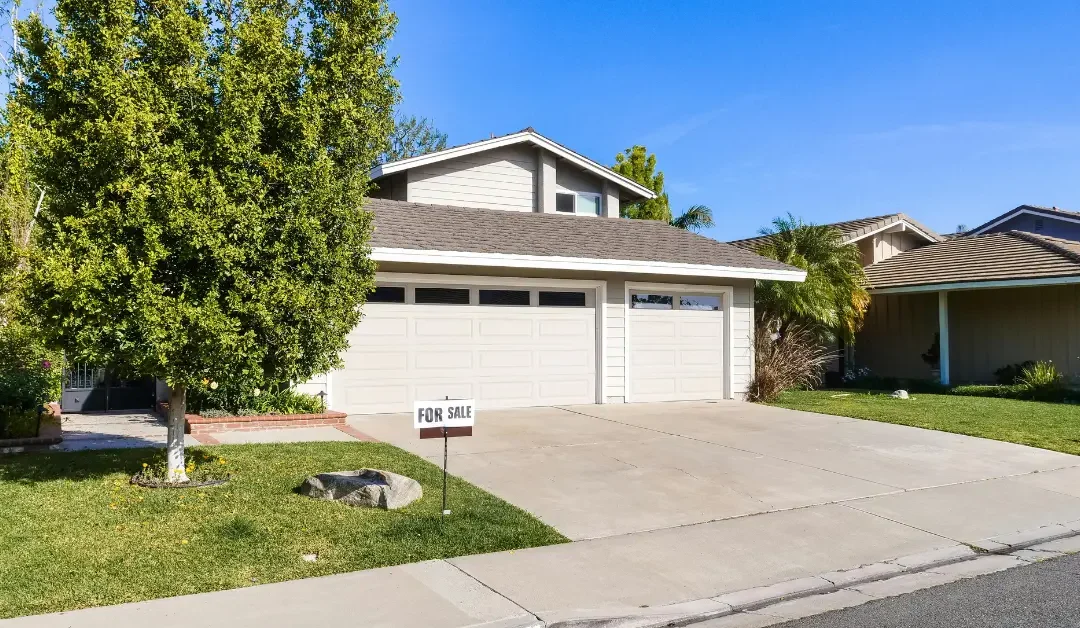Want to buy rental property out of state? Then, this is the article for you.
Sometimes, the best properties for your budget and financial goals are outside of your home state.
But, purchasing property across borders can be overwhelming. Don’t worry, though – I’ve got you covered.
By the end of this article, you’ll know if it’s the right move for you and the exact steps you need to take to get started.
Read on!
Steps to buying rental property out of state:
Can you buy a rental property out of state?
Yes! To buy a rental property out of your home state, you’ll follow the same process as when you’re buying a property in your own state. However, you need to take a lot of the steps remotely and be even more on top of what you’re looking for because you often don’t know the market in another state as well as you do in your own city or state.
We’ll look at those steps below. But first, should you buy a rental property in another state?
Is it a good idea to buy a rental property in another state?
Is buying a rental property out of state the right move for you? I’ve built my own portfolio to seven figures with properties outside of my home state–and have helped plenty of new investors get started by investing outside of their home state. And these are the biggest pros and cons of investing out of state I see as a real estate investor.
Pros of investing in rental property out of state
The main benefits of buying a property outside of your home state are:
- Access to markets: if you want to build a successful rental property company, your home state might not offer the best opportunities
- Higher returns: investing in states with higher rents and lower property prices gives you a greater return on your investment
- Investment portfolio appreciation: diversifying your portfolio gives you a better chance at appreciation over time
- Favorable taxes/regulations: other states have lower property taxes and fairer regulations than yours
Cons of investing in rental property out of state
But there are also challenges when it comes to buying property out of state. These include:
- Limited local market knowledge: not knowing the local property market can mean getting a worse deal
- Property management: you need to learn how to manage your property remotely or hire help
- Legal and tax variations: the legalities and taxes can get complicated if you have several properties in different states
Now you know what the benefits of challenges of out-of-state investing are. But what are the steps you should take to buy one?
Here’s what you need to know.

Steps to buying a rental property out of state
To buy a rental property out of state, you need to:
- Conduct market research
- Understand your finances
- Consider legal and tax obligations
- Build your team
- Acquire your property
- Manage your property
- And mitigate risks
How do I know? I’ve bought several properties out of state – and I know exactly what to look for in a property, how to inspect a property remotely, and how to self-manage it effectively.
Let’s dive into each point further.
1. Conduct market research
You’re probably looking to buy out of state to get a better return on investment (ROI) than in your home state, right?
To get the best deal, you need to find exactly where the promising markets are – not just by state, but cities and neighborhoods, too.
Think about the local:
- Rental demand
- Vacancy rates
- Rental prices
- Property value trends
- Job growth statistics
- And demographic trends
But how do you find the best location for your rental property? Use these techniques to research:
- Online real estate platforms
- Industry reports
- Networking
- And national statistics
Basically, you want to find out as much as possible about the location from experts on the local market before you make any decisions.
Here’s a video where I talk more about finding the best location:
2. Understand your finances
Once you’ve figured out the best location to buy, it’s time to look at your finances.
Start with these questions:
- How much can you expect to spend on renovation and maintenance costs?
- What are the average rental rates in the area?
- How much can you expect in cash flow?
- What is the potential ROI for this property?
To work out your ROI, use this formula: Net profit/cost of investment x 100.
Now that you have your numbers, it’s time to think about financing.
The most common ways to finance a rental property are:
- Conventional bank loans
- Federal Housing Administration loans (FHA)
- Home equity loans
- Veterans Affairs loans (VA)
- Private lenders
- And hard money loans
For the most common option, conventional bank loans, you typically need to pay 15-20% of the property value for a downpayment.
Another option is teaming up with a trusted friend or family member. For example, I partnered with my uncle to buy some of the properties in my portfolio.
Read this article on financing for a deeper dive into each.
Now, let’s go over legal and tax considerations.
3. Take into account legal and tax considerations
One of the main challenges I see with my students when it comes to buying rental property out of state is the legal considerations and taxes.
But if you take your time and research thoroughly, this doesn’t need to be a roadblock.
Think about:
- State-specific tenant-landlord laws
- Property taxes
- Income taxes
- And tax benefits and deductions
Tip: make sure you have a good lawyer to help you navigate your first purchase.
4. Build your team
To buy a property out of state, you need a solid team that includes:
- Real estate agents
- Contractors
- A lawyer
- An accountant
- And a real estate coach (optional)
- Property managers (optional)
To find a great team, referrals and online research are great sources. Then, vet your team thoroughly to make sure they’re the right fit for you. Here’s how:
- Conduct interviews
- Ask for recent references
- Read online reviews
- And negotiate contracts and fee structures
Next up: buying your property.
5. Acquire your property
To buy a property, you need to:
- Find the right property: Use platforms like Zillow and Realtor. Local newspapers and realtor websites are good sources, too.
- Visit the property: If you can’t go in person, ask for a virtual tour or send a local representative on your behalf. I personally prefer to fly out to see the property and get a feel for the area before I close on it.
- Do due diligence: Conduct inspections, title searches, and other important evaluations.
- Make an offer: Decide on a competitive offer that leaves room for negotiation.
- Close on the property: Closing can be a long process of finalizing your loan, getting insurance, reviewing closing documents, and so on. Rely on your team of professionals to help you close on your property remotely.
Want to learn more about analyzing a potential investment property? Then, check out this video:
6. Manage your property
At this point, you might be wondering if you’ll need to hire local property managers to manage your rental property for you.
Well, I can tell you that remote self-management is easier than you think.
The strategy I use is tenant empowerment. In other words, I empower my tenants to handle any immediate emergencies, and I reimburse them.
This involves:
- Good communication with tenants
- Addressing concerns promptly
- And clear terms and emergency procedures outlined in the tenancy agreement
Of course, you can hire a property manager. But if you’re just starting out with limited cash flow, self-management is one of the smartest ways to ensure a higher ROI on your property.
7. Mitigate risks
As a rental property business owner buying out of state, you’re at risk of:
- Property vacancies
- Difficult tenants
- And miscalculating expenses
Here’s how to mitigate those risks:
- Plan for vacancies: Have a clear notice period in your tenancy agreement that will give you enough time to find new tenants when one tenant wants to move out. Investing in student properties – like I do – with multiple tenants per property helps with this.
- Find the right tenants: Vet your potential tenants to make sure they have stable incomes and good communication skills. Meet them personally or virtually to establish a good relationship.
- Understand your expenses: Research your expected monthly and yearly costs thoroughly and plan for the unexpected. Having an adequate emergency fund for your rental property is essential.
Now you know how to invest out of state. But where should you invest? Let’s find out.

What are the best states to buy rental property?
The exact state where you should invest depends on your goals and resources. Based on data, some of the best states to invest in right now are:
- Texas
- Colorado
- South Carolina
- Idaho
- Indiana
Want more locations? Here’s my full guide on the best states to buy rental property.
What’s next?
Now you know exactly how to buy rental property out of state and take your investment portfolio to the next level!
If you’re new to real estate investing and this all sounds overwhelming, I get it.
I work with dozens of clients just like you who want the freedom, flexibility, and financial security of real estate investing but don’t know where to start.
I started a rental property business as a total newbie, making so many common mistakes. My mission is to help investors like you avoid those mistakes and create thriving rental property businesses.
Want my help buying your first rental property out of state? Then, check out my coaching program here.


